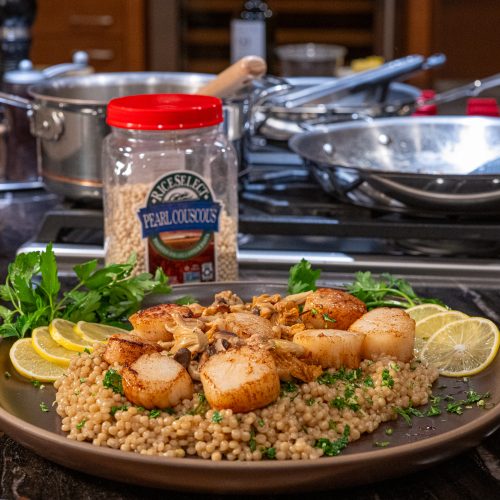When it comes to tying the knot, couples today have more options than ever before. While traditional weddings have long been the standard, elopements are becoming increasingly popular as couples seek more intimate, personalized ways to say “I do.” Both options offer unique advantages, but deciding which one is right for you depends on your values, vision, and circumstances. Here’s a look at the key differences between elopements and traditional weddings to help you make the best choice for your big day.

What Is an Elopement?
Elopement used to refer to a couple secretly running away to get married without their family’s knowledge or approval. Today, however, the meaning has evolved. Modern elopements focus on simplicity and intimacy, often involving just the couple, an officiant, and a few close witnesses. These ceremonies are usually held in beautiful, remote locations like mountains, beaches, or city landmarks, and the focus is on the couple’s connection rather than elaborate celebrations.
What Is a Traditional Wedding?
A traditional wedding typically involves a larger guest list, a ceremony, and a reception with food, music, and dancing. These weddings usually adhere to established customs, which might include walking down the aisle, exchanging vows in front of family and friends, and hosting a multi-tiered event with various formalities such as toasts, first dances, and bouquet tosses.
Factors to Consider When Choosing
1. Budget
One of the most significant differences between an elopement and a traditional wedding is cost. Traditional weddings can be expensive, with the average wedding in many parts of the world costing tens of thousands of dollars. From venues and catering to flowers and entertainment, the list of expenses can quickly add up.
- Elopement: Elopements tend to be much more affordable. With fewer guests, no need for a large venue, and fewer decorations and catering needs, eloping is often a budget-friendly option for couples looking to focus on the essentials.
- Traditional Wedding: A traditional wedding might require a larger budget, especially if you want to invite many guests and host a formal reception. However, it can also be a memorable event that brings loved ones together to celebrate your love.
2. Guest List
Deciding how many people you want to share your wedding day with is crucial. Traditional weddings tend to have large guest lists, while elopements keep things intimate.
- Elopement: If you prefer a private, intimate affair with just the two of you or a small group of loved ones, an elopement might be the right choice. Elopements allow you to focus entirely on your partner without the pressure of entertaining a large crowd.
- Traditional Wedding: A traditional wedding is ideal if you want to include extended family, friends, and coworkers. It allows you to celebrate with everyone you care about, and it can be a once-in-a-lifetime chance to gather all your loved ones in one place.
3. Location and Flexibility
The venue you choose can set the tone for your wedding. Elopements and traditional weddings offer different levels of flexibility when it comes to location and logistics.
- Elopement: Elopements offer the ultimate flexibility. You can choose a meaningful destination—whether it’s a mountain peak, a secluded beach, or even a courthouse. With fewer people involved, you have more freedom to travel and exchange vows in unique or remote locations. Simply Eloped can help you find the perfect location as well as offer beautiful all-inclusive elopement packages in Charleston SC.
- Traditional Wedding: Traditional weddings often require more detailed planning when it comes to securing a venue that can accommodate a large group of people. Popular venues can book up quickly, and coordinating with various vendors can make logistics more complex.
4. Personalization and Atmosphere
The atmosphere of your wedding day is another critical factor. Do you envision a large, lively celebration, or do you prefer a quiet, intimate ceremony?
- Elopement: Elopements offer a deeply personal and intimate experience. The day can focus entirely on your relationship and vows without the distractions of a large crowd or rigid schedules. Many couples appreciate the laid-back, stress-free nature of elopements.
- Traditional Wedding: A traditional wedding offers the chance for a grand, celebratory atmosphere. You can incorporate rituals and traditions that are important to you, including speeches, dances, and moments shared with family and friends. This can create lasting memories for both you and your guests.

5. Planning and Stress Levels
Wedding planning can be overwhelming, but the amount of planning needed differs significantly between an elopement and a traditional wedding.
- Elopement: Elopements tend to be much simpler to plan. Without the need for extensive logistics or vendor coordination, you can focus on just the essentials—location, officiant, and photography. Many couples find that eloping significantly reduces the stress of planning a large event.
- Traditional Wedding: Planning a traditional wedding can be a significant undertaking. Coordinating vendors, managing RSVPs, and ensuring everything runs smoothly on the big day can add pressure. However, for couples who enjoy organizing events or want a larger celebration, this process can be part of the fun.
Conclusion
Ultimately, there’s no right or wrong choice—just what feels right for you as a couple. Whether you dream of an intimate exchange of vows on a mountaintop or a big celebration surrounded by loved ones, the key is to plan a day that reflects your unique relationship and values.
- About the Author
- Latest Posts
Whether she is researching the latest trends in home decor, life-changing destination getaways, or the best way to maintain your finances, Dewey takes pride in leaving no stone unturned. She is passionate about distilling and delivering high-quality information that you can use to upgrade your life.




